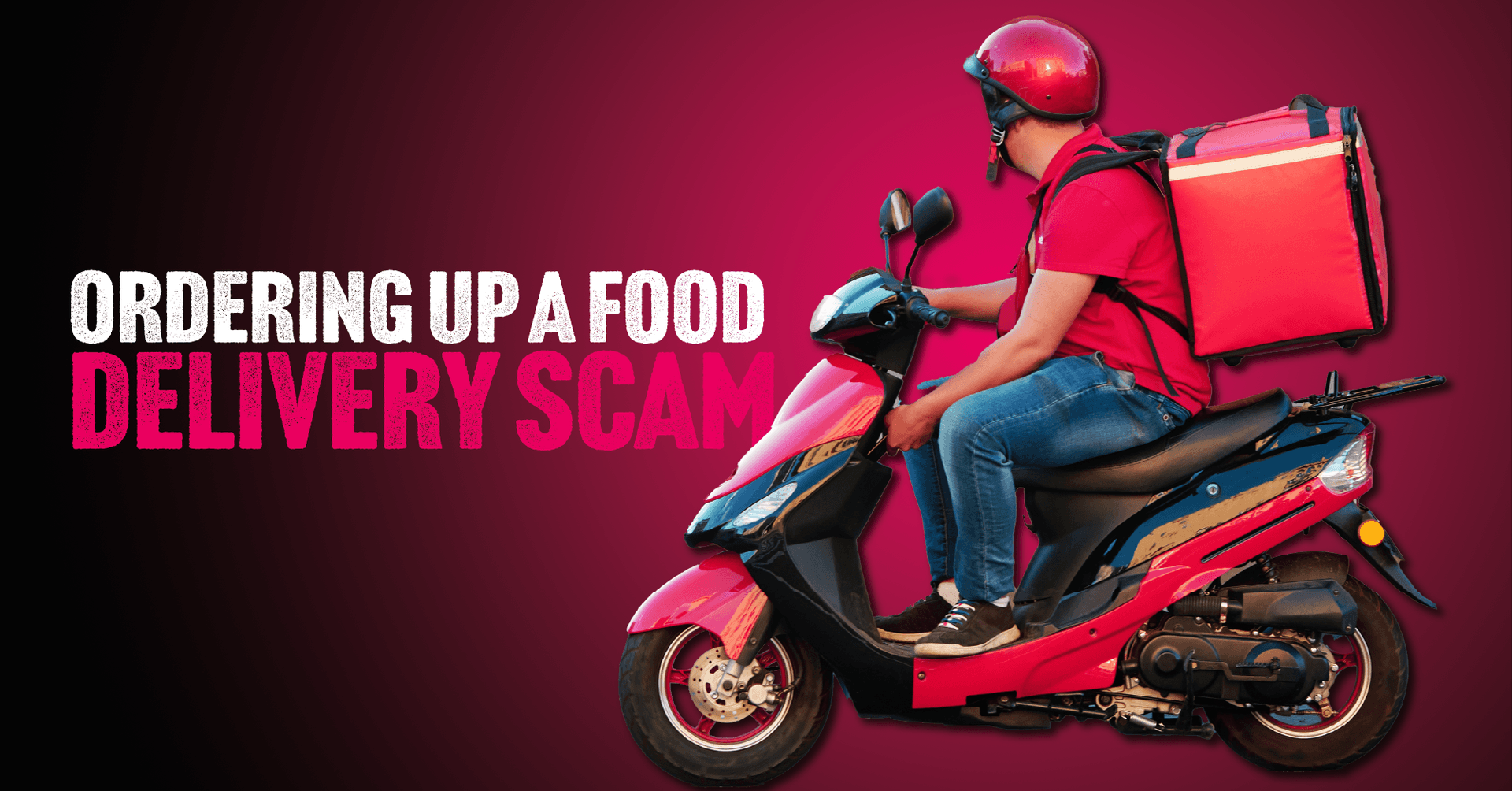- Protect
- Blog
Scam on a plate
Food delivery scams happen in several ways including targeting people who order food online, taking advantage of the convenience and popularity of delivery services such as Deliveroo and JustEat.By Rightly
2 min read

Food delivery scammers trick people into providing personal or financial information, stealing their money, or delivering subpar or non-existent food. Here are some common types of food delivery scams:
- Fake delivery websites and apps: Scammers create fake websites or mobile apps that mimic popular food delivery services. Unsuspecting customers place orders and provide their payment information, only to realise they've been scammed when their food never arrives, or their card is charged for unauthorised amounts
- Phishing emails and texts: Scammers send phishing emails or text messages that appear to be from legitimate food delivery companies. These messages request personal information, such as credit card details or login credentials, under the guise of verifying an order or account information
- Impersonation scams: Scammers pose as delivery drivers or customer service representatives. They might call or text customers, claiming there’s an issue with their order and requesting sensitive information like credit card numbers or passwords. In some cases, they ask for a "redelivery fee" or other additional charges
- Counterfeit or below par food: Some scams involve sending customers substandard or counterfeit food items. The food received may be of lower quality than advertised or even unsafe to consume. Scammers profit from the difference between the cost of the poor-quality food and the price charged to customers
- Non-delivery scams: In this type of scam, customers pay for their orders, but the food never arrives. Scammers claim that the delivery is delayed, and when customers become frustrated and request a refund, they just disappear
- Social engineering: Scammers use social engineering tactics to manipulate customers into revealing personal or financial information. They might claim to be from the delivery service's security department and request sensitive details for verification purposes
Protect yourself from food delivery scams:
You can take steps to keep yourself safe from food delivery scams:
- Always use official, well-known food delivery apps and websites
- Verify the legitimacy of any email, text, or phone call claiming to be from a food delivery service before providing any personal information
- Never share your personal or financial information with delivery drivers or customer service representatives
- Check the reviews and ratings of the restaurant you're ordering from and be cautious of deals that seem too good to be true
- Report any suspicious activity to the food delivery service and local authorities.
Data hygiene
Staying informed and vigilant is crucial in protecting yourself from food delivery scams and ensuring a safe and enjoyable ordering experience. Your data is valuable and you should protect it like anything else.
Scams often start with a piece of your personal data falling into the hands of a scammer who then uses it to trick you into parting with even more data, or your money. If a scammer has your data, you become more vulnerable to scams and even identity theft.
The best way to prevent that is to get your data deleted from any organisation which doesn't need it, long before a hacker can get to it. Rightly Protect is our product that can help you find out which companies have your data and then get it deleted from those that don’t need it any more, quickly and for free.
Related Articles
- Blog
6 min read

Look after your family's data
It’s Family Safety Week and we’re taking a look at how valuable your family’s data is and how you should take steps to protect it. Firstly so that it doesn’t fall into the hands of scammers who would use it against you, and secondly so that you can use your personal data to your advantage to get value from it and create better outcomes for yourself.
- Blog
4 min read

Breaches of 2022
2022 saw more data breaches than ever. Take a look at just ten examples. And think about how you can minimise the risk of your data appearing in a hack that could make you vulnerable to scams.